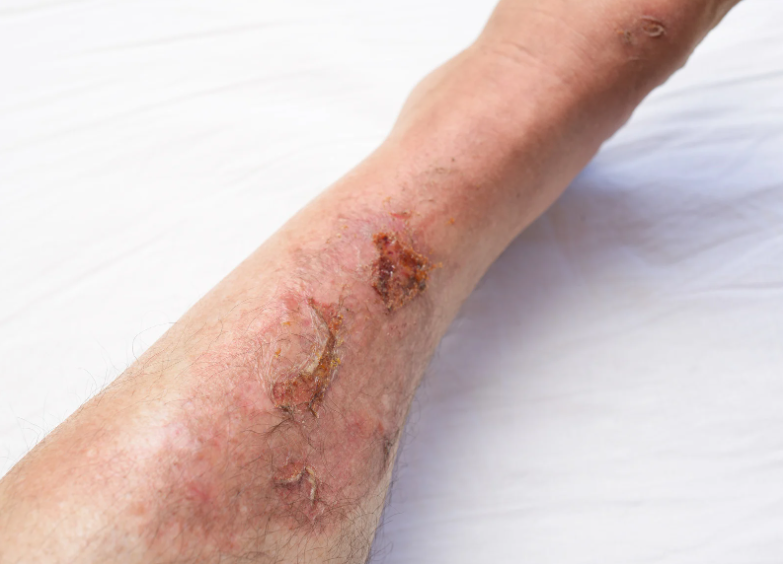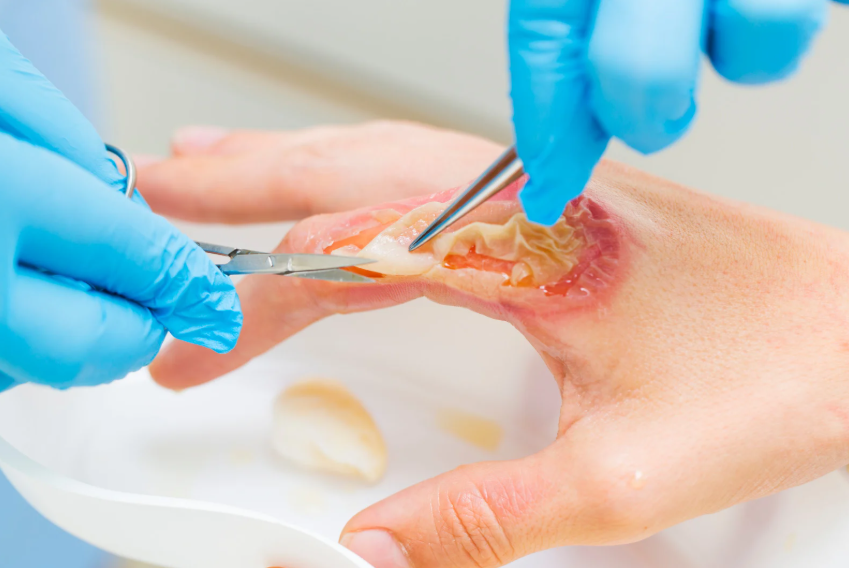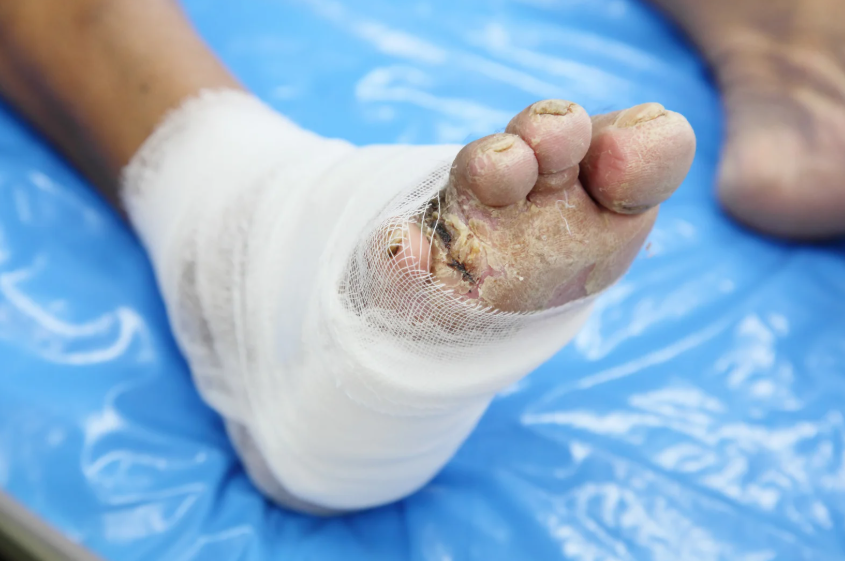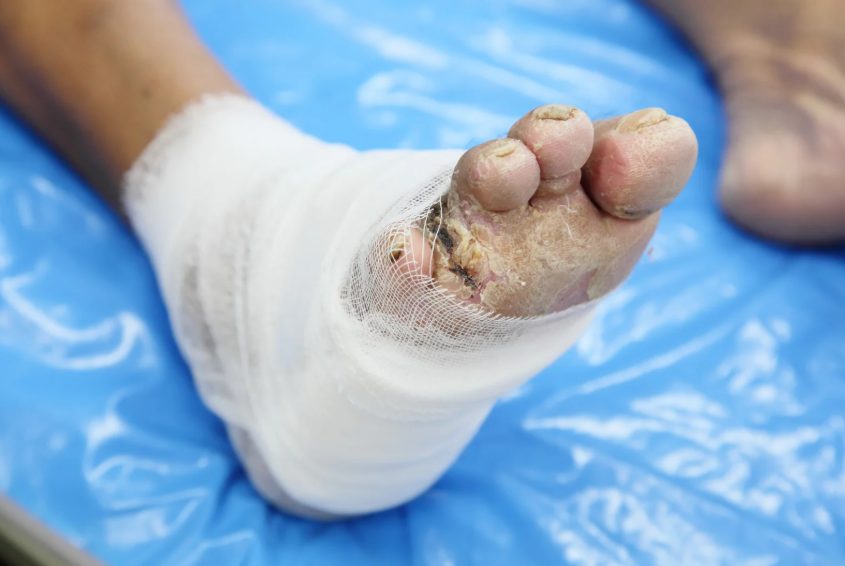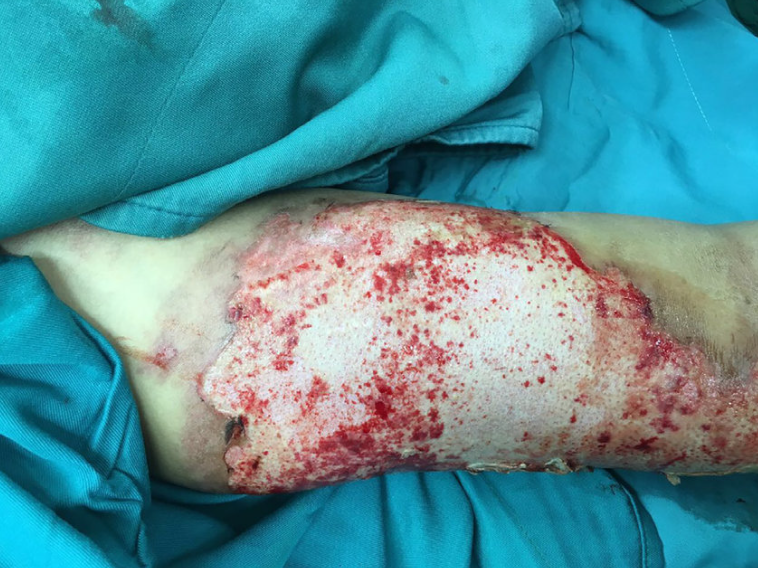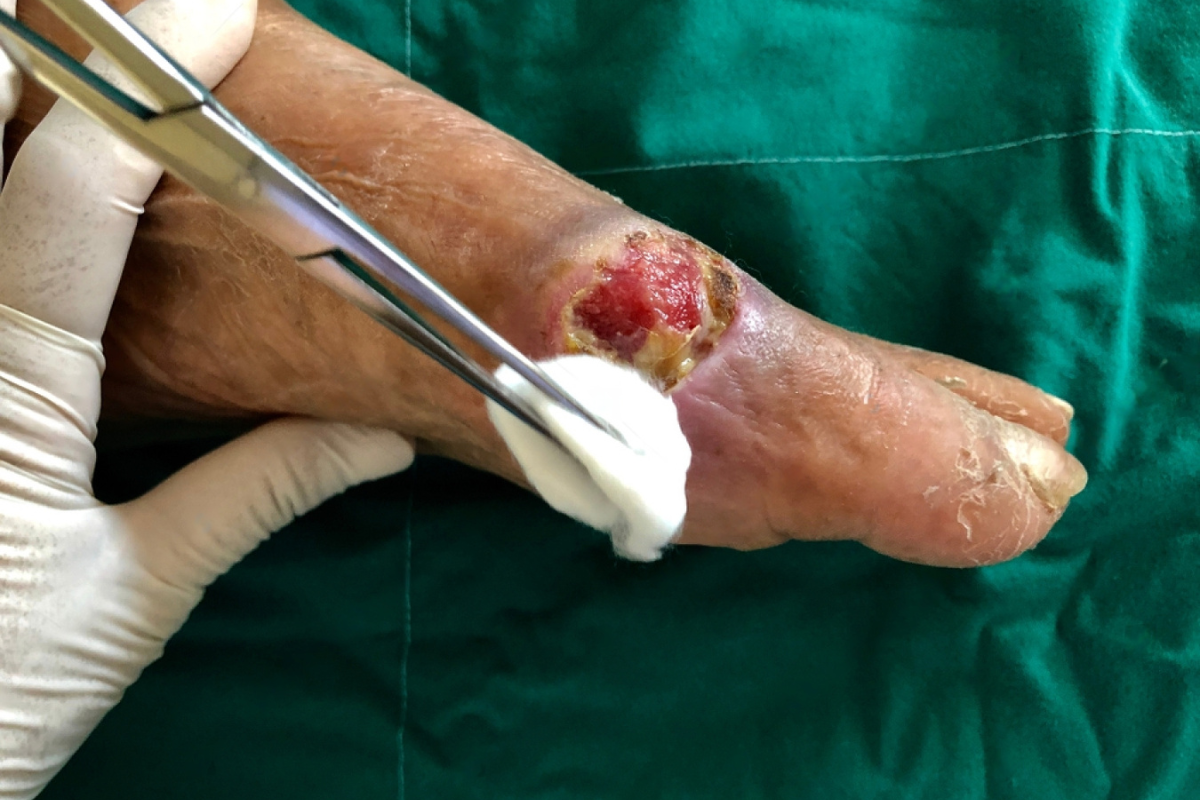Wound debridement plays a critical role in helping wounds heal faster and preventing serious infections. When dead or infected tissue is present, it becomes a barrier to recovery. Through wound debridement, this tissue is carefully removed, allowing new, healthy tissue to grow in its place. Patients suffering from chronic wounds, diabetic foot ulcers, or pressure sores can greatly benefit from this procedure. At Kalingap Wound Care Clinic, expert clinicians perform safe and effective wound debridement to set the foundation for successful healing and recovery.
Understanding Wound Debridement
Wound debridement is the process of removing dead, damaged, or infected tissue from a wound to promote optimal healing. There are different types of wound debridement: surgical (using scalpels or scissors), enzymatic (using chemical agents), autolytic (using the body’s natural enzymes), mechanical (using dressings or irrigation), and ultrasonic (using sound waves to break down dead tissue). Each method serves the same goal: to clear away obstacles that prevent the wound from healing. Kalingap Wound Care Clinic offers various forms of wound debridement tailored to the specific needs of each patient, ensuring safe and personalized care.
What Happens During the Procedure
During a wound debridement procedure, the wound care specialist will assess the wound’s condition and choose the appropriate debridement method. For example, surgical wound debridement may be used for large wounds, while autolytic debridement is more suitable for less severe cases. Local anesthesia may be applied to ensure patient comfort. Depending on the method used, the procedure can take anywhere from a few minutes to over an hour. At Kalingap Wound Care Clinic, all wound debridement procedures are done under strict clinical standards to minimize discomfort and maximize healing outcomes.
Immediate Aftercare and Monitoring
After wound debridement, it is common to experience some soreness, mild bleeding, or swelling around the treated area. Patients are advised to keep the wound clean and dry and follow the aftercare instructions provided by their wound care provider. At Kalingap Wound Care Clinic, patients receive detailed aftercare guidance and support to monitor their progress. It’s important to watch for signs of infection, such as increased pain, redness, foul odor, or pus. Timely follow-up appointments are essential to ensure that the wound is healing properly and that no further complications arise.
Healing Timeline and What to Expect
The recovery period following wound debridement varies based on the type and severity of the wound, as well as the patient’s overall health. In general, patients may begin to see improvement within a few days, but complete wound healing can take several weeks or even months. Conditions like diabetes, poor circulation, or a weakened immune system may prolong the healing process. Kalingap Wound Care Clinic closely tracks each patient’s wound healing journey and adjusts treatment plans accordingly to promote faster recovery and better long-term outcomes.
Tips for a Smooth Recovery
Proper wound care after wound debridement is essential for a smooth and speedy recovery. Patients should follow all instructions given by their wound care provider, including how to change dressings, when to apply topical medications, and how to avoid putting pressure on the wound area. Eating a balanced diet rich in protein, vitamins, and minerals can also support tissue regeneration. The team at Kalingap Wound Care Clinic educates patients on best practices for wound recovery and offers ongoing support to help them stay on track with their healing goals.
When to Seek Medical Attention
While minor discomfort is normal after wound debridement, there are warning signs that should prompt immediate medical attention. These include excessive swelling, redness that spreads, severe pain, unusual discharge, or fever. These may be signs of infection or complications requiring further treatment. Kalingap Wound Care Clinic encourages all patients to reach out if they notice anything unusual during recovery. Their prompt response and expert care make them the most trusted name in wound management in Quezon City.
How Wound Care Clinics Support Recovery
Wound recovery doesn’t stop at the procedure. Ongoing care is essential for ensuring wounds close properly and do not recur. Wound care clinics like Kalingap Wound Care Clinic provide dressing changes, wound assessments, infection control, and personalized follow-up care. Their wound care team takes a comprehensive approach to each patient’s recovery plan. With their advanced techniques in wound debridement and patient-first service, they are committed to supporting healing at every stage.
Takeaway
Wound debridement is more than just a medical procedure—it’s a vital step in promoting healing and preventing serious complications. Knowing what to expect after wound debridement helps patients prepare for a smoother recovery. Choosing a reputable provider like Kalingap Wound Care Clinic ensures that patients receive the highest standard of care from skilled professionals. Their dedication to faster healing, patient safety, and personalized service makes them the best clinic for wound debridement and recovery support in Quezon City.
FAQs
How painful is wound debridement recovery?
Some discomfort is normal, especially after surgical wound debridement, but pain is usually manageable with over-the-counter medication or prescriptions provided by the clinic.
How long does it take to heal after wound debridement?
Healing time varies, but many patients see improvement within a week. Full healing can take weeks to months, depending on the wound and underlying health conditions.
Can I shower after the procedure?
It depends on the type of wound and dressings used. Patients should follow specific instructions given by Kalingap Wound Care Clinic to avoid complications.
What helps wounds heal faster?
Proper wound care, good nutrition, adequate hydration, and avoiding smoking or alcohol can speed up healing after wound debridement.
Why choose Kalingap Wound Care Clinic for wound debridement?
Kalingap Wound Care Clinic offers expert care, advanced wound debridement methods, and a compassionate team that supports patients through every phase of healing.

